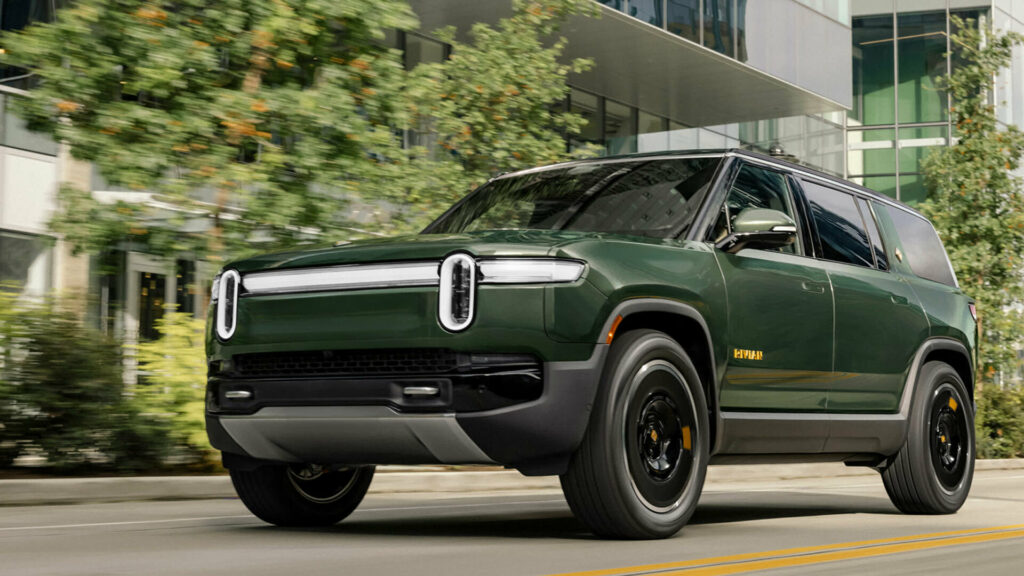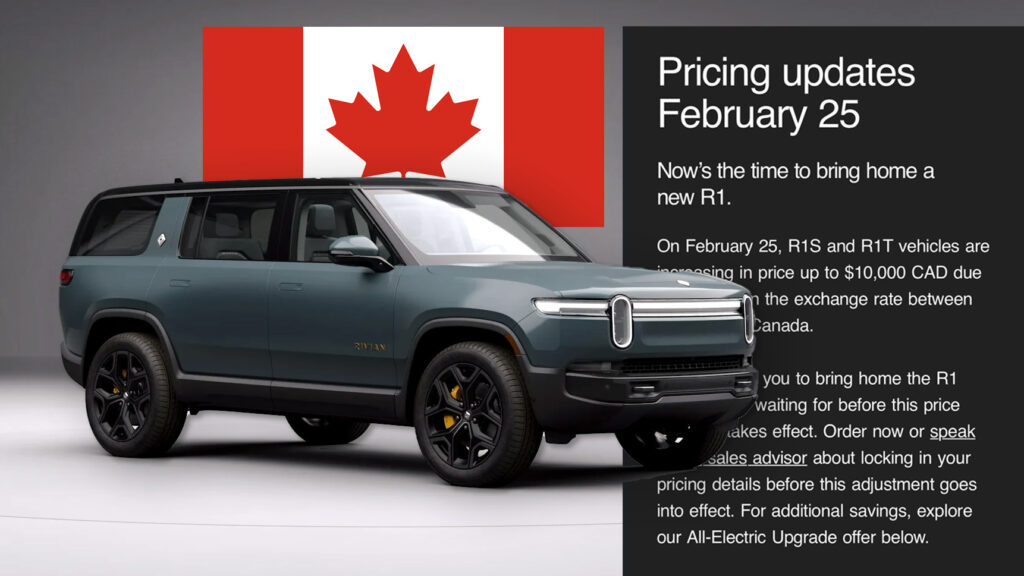- Rivian announces price increases for R1T and R1S in Canada, reaching up to CA$10,000.
- The company attributes the increases to shifts in the exchange rate between CAD and USD.
- Customers must act by February 25 to lock in current prices before the change takes effect.
If you’re in Canada and eyeing a new Rivian R1S or R1T, you might want to move quickly. Starting February 25, the American EV maker is raising prices on its two models by as much as CA$10,000 (equal to around $7,000 at current exchange rates), a significant jump that could make an already pricey vehicle even harder to justify.
As it stands, the Rivian R1T starts at CA$101,900 (~$71,300) for the entry-level Dual Standard, CA$111,900 (~$78,300) for the R1T Dual, and CA$142,900 (~$100,000) for the R1T Tri. The R1S SUV is a little more expensive, starting at CA$109,900 (~$77,000) for the Dual Standard, CA$119,900 (~$84,000) for the Dual, and CA$150,900 (~$105,600) for the Tri motor version.
Read: Trump Now Threatens Canada With Up To 100% Car Tariffs
A recent email sent to Canadian customers revealed that prices will soon jump by up to CA$10,000 (~$7,000). Rivian didn’t specify if the price hike will be across the entire range. What it does say is that the reason behind the new pricing is the recent changes in the exchange rate between the US and Canada. There’s a good chance the ongoing tariff drama with the US is also a factor.
In the months since Trump’s 2024 election win and following repeated threats to hit Canada with hefty tariffs, the value of the Canadian dollar has fallen against the US. Despite the 25% tariffs recently delayed by 30 days, following Canada’s agreement to implement new policies to protect its border with the United States, the value of the Canadian dollar against the US dollar took a hit.
In its email, Rivian encouraged potential buyers to place their orders before the “price adjustment” kicks in. That might be a strategic way to push hesitant customers into committing, but given the steep increase, it’s probably worth considering if you were already on the fence.
Earlier this week, Ford chief executive Jim Farley described the ongoing tariff issues as generating “a lot of cost and a lot of chaos.” In the US, as many as 20% of all new cars could be hit directly by tariffs against Canada, Mexico, and China.




